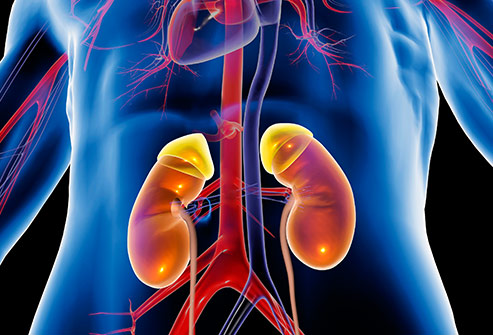|
Have you ever tried to balance your check book, and just couldn't get it to balance? You became so stressed out and upset, that you throw your hands up in disgust and walk away? But after sleeping on it, you calmed down, sat back down, and the answer seemed so obvious, that you wonder how you missed it in the first place? What just happened? The emotional stress that you were experiencing triggered an autonomic nervous system response, which fired up a sympathetic (fight or flight) response. When this happens, it stops you from being able to think and reason clearly, shuts down your digestion, stops any healing processes going on in your body, and prepares you for a life-threatening response to the situation. Your body is thrown into a survival state, and your brain can't distinguish between a simple number being off (in your checkbook), or you being attacked by a mugger or assailant. Now let's apply this to any type of chronic disease: When I consult with a patient with almost any type of long-standing physical condition, we can usually trace the beginning of their disease process back to a point of great emotional stress. Of course, there are other types of stress that can trigger this response, such as chemical or toxic stress, infections, or even a physical injury. But in most of the cases, even with a physical or chemical stresser, there's an emotional component to it as well. This is called cellular stress. All the cells in your body will retain memories. It was once thought that all our memories were stored in our brain, but after multiple attempts at dissecting various lobes of the brain, people still retained memories. But when the medical profession started doing transplants (such as new hearts, kidneys, lungs, etc.) many times the patient would experience memories, cravings, or personality traits of the previous owner. This demonstrated that the memories were being stored in the very cells of the tissues that had been transplanted! Dr. Alex Loyd in his book "The healing code" expands on this concept, and explains how emotional stressers...dating back as far as infancy, can and are retained in all the cells of the body. If these are negative emotions (such as abuse, feelings of inadequacy, fear, etc.), they can have a subconscious effect on the cells of your body. This results in a continuous sympathetic nervous system firing, while shutting or slowing down the parasympathetic nervous system. If we think of the sympathetic nervous system as the gas peddle on a car, the parasympathetic nervous system would be the brake: It slows your heart beat, allows you to digest your food, and activates your healing and immune system. Can you imagine what happens to a body that is constantly in a "fight or flight" response? You may suffer from chronic stress and adrenal fatigue, insomnia, brain fog, a thyroid disorder, diabetes, or any other effect from your immune system being shut down, and not having the ability to respond to an infection, injury, or even general maintenance of the tissue. One of the worst case scenarios is cancer! This is why addressing any kind of a chronic disease HAS to have the cellular memories addressed and neutralized (if there are stored negative emotions in the cells). Once you understand this concept, you can re-activate your body's immune and healing system, and whatever treatment you are receiving will likely become "super-charged", getting you the desired healing response. (Or your body may just heal itself!) As advanced as this psychological treatment might appear, this is an ancient biblical concept . In Matthew 11:28-30, Jesus states: "Come unto me, all ye who labor and are heavy laden, and I will give you rest. Take my yoke upon you and learn of me, for I am meek and lowly of heart. And you shall find rest unto your souls. For my yoke is easy, and my burden is light." A yoke (not the egg-type) is a piece of farm equipment used to bind oxen or horses together so they could both pull together in performing activities such as plowing, making the job easier for both of the animals.
What Christ was saying is "Let me help you share the load, or the burden". In other words, stop worrying and stressing over the things of this world, which will have little or no lasting consequences, and concern yourself with the things that truly matter...eternally. When you "Seek first the kingdom of God and His righteousness", all these other things will be taken care of...or "added unto you". (Mt. 6.33) Although this may sound like a "spiritual" recommendation, it has a profound effects on your health as well. There are 365 scriptures in the bible (if I'm counting correctly) that tell us not to worry, be anxious for anything, or stressed out - a verse for every day of the year! When a person invites Christ into their heart, there's a peace and joy that fills them, and begins a healing process that can heal any medical condition known to man. But our natural tendency is to allow the world to conform our minds to its way of thinking...which is all about stress and worry. Rom. 12:2 tells us "Not to be conformed to this world, but be transformed by the renewing of your mind..." which is done by cleansing your though mind with the word of God - teaching you to think the way God does. But if these stressers are subconscious, and we don't even know that it's happening, it takes a deep work of God's Holy Spirit to get into your heart and heal it. Without trusting and believing in God for this, your efforts will only have temporary and limited effects. Although Dr. Loyd is not saying this is a mandatory part of healing (accepting Christ as your savior), the principals he uses in "The healing code" depends upon you having a healthy understanding of who you really are (not what others have told you) and who God says you are. Once you learn to transform your mind, it will reprogram the cells throughout your body and de-activate the constant firing of your sympathetic nervous system, and fire up your parasympathetic nervous system to allow your body to heal the way God designed it to. I have seen amazing results with my patients that apply these "codes", and those that utilize them (as compared to those who don't) will typically heal from their disease process much more quickly...and permanently. Wishing you and Abundance of Life and Health, Dr. Filippini
0 Comments
What does chronic sinusitis, post-nasal drip, auto-immune disease and digestive issues have in common?
Gut inflammation! The sinuses and the gut differentiate from the same embryonic tissue. As the gut develops, the sinuses migrate and develop into the skull . What that means is there's a very intimate connection between these tissues. When one becomes inflamed (i.e. the gut), the other will become inflamed as well. This is due to the release of cytokines. Cytokines are chemicals, similar to hormones, in that they communicate with the other tissues of the body. If the gut becomes inflamed from exposure to a certain type of food or infection, it signals the brain (as well as the other immune-regulating tissues in the body) to let them know of the potential danger and attack. These tissues will then go into a state of inflammation - gearing up for a battle. (This is what causes the symptoms of sinus inflammation and/or post-nasal drip.) The problem with medical treatment for sinusitis: Antibiotics. Most doctors will prescribe antibiotics for sinus infections, post-nasal drip, or sometimes just for symptoms of a common cold. THIS IS A HUGE MISTAKE! Antibiotics kill off the normal, healthy gut flora/bacteria that your body depends on for maintaining its immunity. If you kill off that good bacteria with antibiotics, it leads to dysbiosis (abnormal levels of healthy and unhealthy bacteria in the gut), and causes "leaky gut" - an increase in the permeability of the small intestines. Reducing gut inflammation and rebuilding the healthy gut flora (with probiotics) can eliminate chronic sinusitis, as well as boost your immune system. But in the case of mycobacterial infections in the sinuses, this will also need to be addressed. Mycobacteria is different from normal bacteria, in that it lacks a cell wall for antibiotics or even your own immune system, to attach to in order to stop the replication. That's why antibiotics won't work, or are only short-lived. This results in chronic sinus infections that continue to worsen as you destroy your gut flora with antibiotics. To learn more about your gut, visit our website at AbundantLifeHandW.com, and check out digestive disorders under "Conditions we treat". If you get that "gut feeling" that this may be geared towards you, give us a call or shoot us an email. Best wishes for Abundant Health! Dr. Filippini As with most health conditions, the best treatment for kidney problems is prevention. If you've ever passed a kidney stone, you're probably willing to do anything to prevent it from happening again. (It's been said that it's as painful as delivering a baby.) And if your kidneys are starting to have problems, which can lead to kidney failure, you will want to do everything in your power to avoid dialysis and the potential need for a kidney transplant.
But what about everyone else who has never experienced kidney stones or failing kidneys? Is there something that's not too inconvenient to help avoid future potential kidney issues? Would you believe that it could be as simple as drinking adequate amounts of water? I'm surprised at how many patients I see that when I question them on how much water they drink, they think drinking 2 or 3 glasses a day is adequate...or simply drinking lots of soda or coffee! If you skip the rest of this article - here's what you need to know: You need to drink half your body weight (in pounds) in ounces of water daily. So if you weigh 200 pounds, you need to drink about 100 ounces of water every day. Coffee and soda does NOT count - and if you are a coffee or soda drinker, you need to add extra water intake to flush out and re-hydrate your body from the damaging effect these drinks have on your kidneys. The stronger the coffee, the more water you should add. How do you know if you're not getting enough water? Chapped lips are a clue. If your lips are dry and chapped, and you're always using lip balm, the chances are that you're dehydrated. You can also do the pinch test: Pinch the skin on the back of your hand. Healthy hydrated skin should recoil almost immediately. If it takes several seconds to smooth out, the chances are high that you're not drinking enough water. (Obviously, skin elasticity decreases with age.) A great habit to get into is to drink a couple of 16 oz. glasses of water as soon as you get up in the morning. You lose a lot of water throughout the night, and likely haven't had any water intake for at least 8 hours. This starts the day off right, and then you only need a few more glasses of water throughout the day to remain fully hydrated. If your urine is dark, discolored or cloudy throughout the day, like it is first thing in the morning - you are likely not getting enough water. If you take vitamins (like vitamin C or B), it may be a darker yellow the first few hours of the day, but it should become clear throughout the rest of the day. If it's not...DRINK MORE WATER. If it's reddish or cloudy, this could be an infection. Consult a doctor for a urinalysis (preferably a functional medicine doctor, unless you want to end up on antibiotics). The same thing goes for burning with urination, frequent urination, or pain or itching. (Low back pain can also suggest kidney infection). If you are tender to a light punch/pounding just below the ribs on the back - called "Murphy's sign", this can be indicative of a kidney problem. If you've had recent lab work performed, markers you can check that indicate possible dehydration are: Hemoglobin (HGB)) - Levels above 14.5 suggest possible dehydration Total Red Blood Cell count (RBC) - Levels about 4.5 suggest possible dehydration Creatinine - Levels above .90 indicate possible kidney insufficiency Blood Urea Nitrogen (BUN) - Levels above 18.0 suggest kidney problems or dehydration Sodium - Levels above 140 could suggest dehydration Potassium - Levels above 4.50 could suggest dehydration Chloride - Levels above 106 could suggest dehydration Phosphorus - Levels above 4.0 suggest possible kidney dysfunction Total Protein - Levels above 7.4 suggest possible dehydration Albumin - Levels above 5.0 suggest possible dehydration Homocysteine - Levels above 10.0 could suggest kidney disease Glomerular Filtration Rate (GFR) - Levels below 60 indicate kidney disease/failing kidneys These lab markers are not meant to be interpreted individually, but as a pattern. If you suspect kidney disease or problems, consult a functional medicine doctor. There are lots of products that you can take to support your kidneys, as well as even REVERSE Chronic Kidney Disease/Failure. The first thing to do, however, is find out if your kidney issues are due to a poor diet, inflammation, liver problems, a leaky gut, dehydration, an infection, etc. That can only be done by a doctor of functional medicine. The medical approach is all the same: Medicate you until the kidneys fail, and then provide dialysis or a total kidney replacement. (Or antibiotics for a urinary tract infection.) Your kidneys are your filtration system to excrete waste and keep your minerals balanced. They are vital to your health, and deserve whatever care it takes to keep them healthy. Simply drinking adequate amounts of water and getting regular exercise for circulation will do wonders for kidney health (like routinely changing the oil in your car). Do yourself a huge favor, and don't neglect this simple and important habit. Wishing you Abundant Health. God Bless, Dr. Filippini |
Dr. FilippiniFounder of Abundant Life Health & Wellness, a functional medicine clinic located in Danville, CA. Archives
March 2020
Categories |



 RSS Feed
RSS Feed